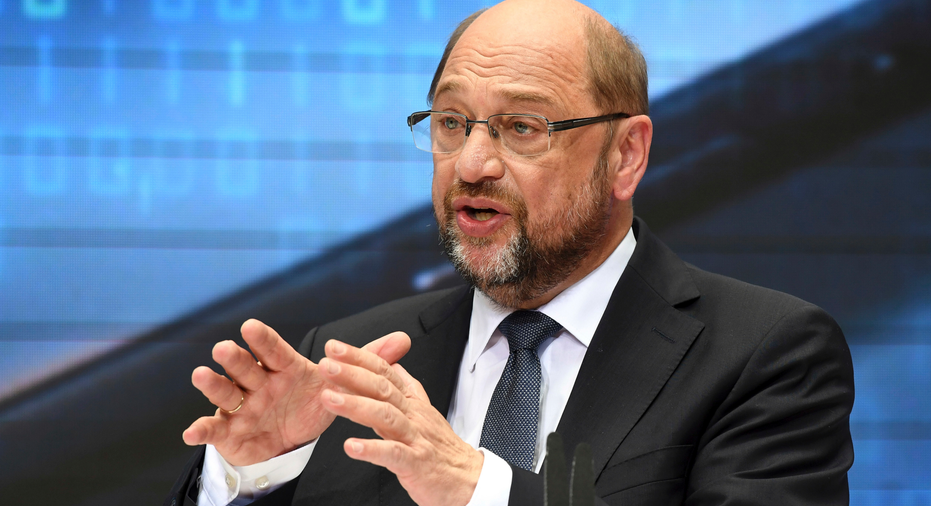Merkel's challenger: Germany should invest in infrastructure

BERLIN – Chancellor Angela Merkel's challenger in Germany's national election called Sunday for the government to be obliged to invest a set amount in infrastructure such as roads, railways and schools.
Under Merkel, Germany has made it a priority to stop running up debt but has faced criticism for spending and investing too little. Center-left challenger Martin Schulz of the Social Democrats is struggling to dent a double-digit poll lead for Merkel's conservatives before the Sept. 24 parliamentary vote.
Schulz said the "debt brake" already enshrined in Germany's constitution to curb borrowing should be complemented by an obligation to invest a certain quantity in infrastructure. His Social Democrats gave no specific figure, but said it would be "oriented toward the budget's room for maneuver."
"The state, and that is right, isn't allowed to run up unacceptable deficits," Schulz said in Berlin. "But then ... it must also use its money to improve public infrastructure according to binding specifications."
"What is more important to us: Handing out tax gifts to the rich, or ensuring that rain doesn't drip through the school roof?" he asked.
Schulz also called for an "opportunity account" for employees, with an "opening deposit" from the government, which could be used to finance new qualifications or other things.
The former European Parliament president also said he would insist on the future European Union budget being based on "solidarity" — a swipe at countries such as Poland and Hungary that have refused to take in refugees.
Schulz's focus on "social justice" and addressing perceived economic injustices has yet to ignite with voters. His party is currently the junior partner in Merkel's governing coalition — an arrangement both want to end.
Merkel's conservatives have accused him of talking down Germany's strengths, and the chancellor says the problem with investment is not that money isn't available but that planning processes are too slow.
Merkel told ARD television later Sunday that her government has balanced the budget while also "massively" expanding investment in internet connections, roads and creches.
"At the moment, we cannot spend the money we have," she said. "I see the main point not in the question of whether there should be more money — we can and must do that — but first speeding up planning."
If Merkel wins and serves out a fourth term, she would equal Helmut Kohl's post-war record of 16 years as chancellor. There is currently no single obvious conservative successor.
Asked if she could guarantee that she would serve a full four years, Merkel replied that she had made clear she plans to do so and has "the firm intention to do exactly what I told people."
She also vowed to continue resisting a Bavarian conservative ally's longstanding call for a fixed cap on the number of refugees Germany will accept every year.
"I will not accept it," she said.



















